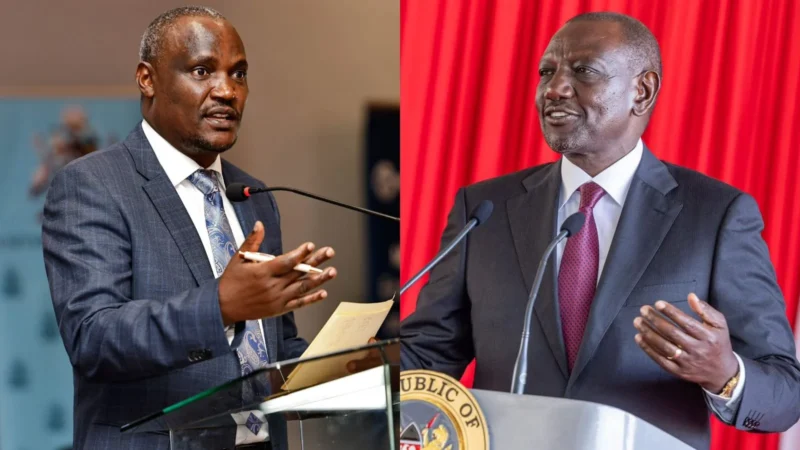A deepening communication crisis within government has emerged after conflicting statements from President William Ruto, Treasury CS John Mbadi, and Education CS Julius Ogamba regarding the future of Junior School intern teachers.
Two weeks ago, CS Mbadi told Parliament that Treasury had already allocated funds to confirm all interns to permanent and pensionable terms by January 2026. His remarks gave interns much-needed hope.
But CS Ogamba contradicted that position, warning Parliament that unless additional funding is released, the ministry may be forced to extend the internships beyond 2025. According to him, confirmation cannot proceed without adequate financial support.
President Ruto’s latest stance introduces yet another direction: a fixed two-year internship rule before confirmation.
The mixed messaging has left teachers in confusion and exposed deeper coordination challenges within government. Stakeholders argue that the contradictory remarks highlight underlying tensions in fiscal planning, human resource management, and inter-agency communication.
Labour unions say the government is not speaking with one voice, fuelling mistrust among teachers who already feel overworked and undervalued. For the Teachers Service Commission (TSC), the confusion raises concerns about its operational independence and the growing political interference in staffing matters.
Analysts warn that such contradictions could derail the implementation of the Competency-Based Education (CBE) system, which relies heavily on consistent policy direction and adequate staffing.
Intern teachers say they no longer know which directive to trust—Treasury’s assurance, the Ministry’s caution, or the President’s firm declaration. Many feel trapped in a system that keeps changing the rules halfway.
Education experts insist that the government must urgently harmonise its messaging, develop a clear transition plan, and ensure that funding, timelines, and policy commitments align. Without this, Junior School risks entering a period of instability marked by poor morale, legal battles, and teacher shortages.





